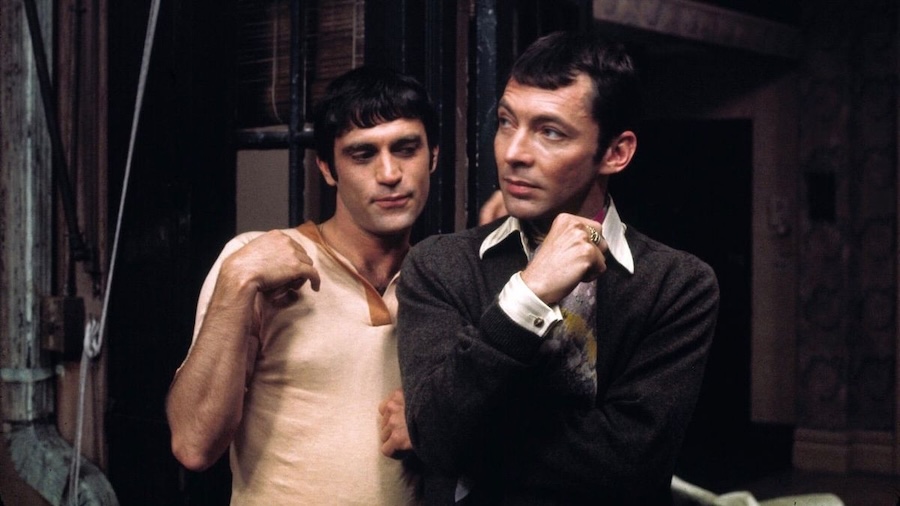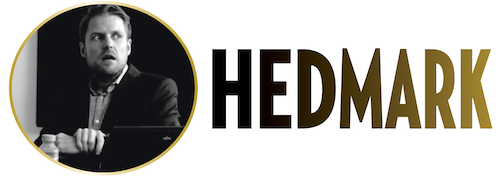
EXTRAORDINARY. GROUNDBREAKING. CONTROVERSIAL.

We have Natalie Wood to thank for the play ”The Boys in the Band”. She met the playwright, Mart Crowley, in the late 1950s when she was the star of the film Splendor in the Grass and he was working as a production assistant. They became friends and Wood ended up supporting him with money and time to finish a gay-themed play he was working on. Crowley was influenced by how society treated him and other homosexuals; even if he didn’t think of himself as an activist, his way of mirroring the attitudes of that era had a profound impact.
The film adaptation followed in the mighty footsteps of the play, but also became a groundbreaking event in its own right.
Preparing for a birthday party
The drama takes place in an Upper East Side apartment in Manhattan where Michael (Kenneth Nelson) is preparing a birthday party for his friend Harold (Leonard Frey), assisted by Donald (Frederick Combs) with whom he has a history. The guests are all gay men. Suddenly, Michael’s old college roommate Alan (Peter White) calls him as he and Donald are preparing for the evening. Distraught, Alan tells Michael that he has something to say and wants to meet. Michael tells him that he’s really busy tonight, but invites him over. Some time later, Alan shows up and his presence changes the mood of the party. Michael wonders what this straight man, who’s married, is up to.
Help from Albee and Dunne
When the time came to bring the play to Broadway, Crowley was once again helped by someone who understood the value of his work, renowned playwright Edward Albee, who was also gay himself. He was one of the people who got ”The Boys in the Band” produced on an off-Broadway stage in 1968, where it quickly became a hit. Soon, Dominick Dunne entered the picture and helped Crowley get the play filmed. Hiring the man who made The Exorcist (1973) as director might seem like a strange choice now, but in 1970 it was pretty obvious: William Friedkin had just turned Harold Pinter’s play ”The Birthday Party” into an interesting movie, and Crowley’s work needed a similar touch. The film became part of cinema history, even if a scene where two of the characters kiss was eventually cut, a decision that Friedkin later regretted.
Some of it will inevitably seem dated, but it’s also raw, funny, devastatingly sharp and deeply emotional.
There’s a special intimacy in a theater between the cast and the audience, but Friedkin and his crew recreated some of that tension while also taking advantage of what makes film unique. As things get heated in the play’s second half when a rainstorm forces the guests to leave the patio and go inside where the alcohol-fueled, sweaty games between the men take a darker turn, the filmmakers use close-ups and editing to drive our attention toward whatever they want us to notice. The film documents its era in terms of style, fashion, dialogue and social mores. Some of it will inevitably seem dated, but it’s also raw, funny, devastatingly sharp and deeply emotional. The play has remained relevant through the ages, debated by those who feel that all it has is stereotypes bitching at each other and those who feel that it speaks to their own experiences as gay men.
The cast of the play joined the film as well. Among the standouts are Nelson as Michael (the character who’s closest to Crowley himself), struggling with self-loathing, booze and his desire to belong somewhere else; and Frey as Harold, the birthday boy who’s obsessed with losing his looks and ability to attract younger men. Years later, AIDS would kill many of these actors, as well as the original director and producer of the play, a fact that adds an extra layer of tragedy behind the witty sniping.
The Boys in the Band 1970-U.S. 120 min. Color. Directed by William Friedkin. Production, Screenplay, Play: Mart Crowley. Cinematography: Arthur J. Ornitz. Cast: Kenneth Nelson (Michael), Leonard Frey (Harold), Cliff Gorman (Emory), Laurence Luckinbill, Frederick Combs, Keith Prentice.
Trivia: Co-executive produced by Dunne. Maud Adams appears in the opening scenes. Remade as The Boys in the Band (2020).
Quote: “There’s one thing to be said about masturbation: you certainly don’t have to look your best.” (Nelson)
Last word: “There was no doubt that the scene that Mart Crowley wrote about was something he had experienced. He and I discussed the specific people, some of which I knew, who were the models for these characters, and Mart was largely writing out of an experience, so he clearly is the creator of “Boys in the Band”, and although Mart did define himself as gay, it would’ve been very difficult to label him in that way if he had not defined himself in that way […] I have never defined myself either way, and we can talk about this as openly as you want, but Boys in the Band was a film I made because I thought the script was great, the characters were well drawn, and as a script, it was a very good piece of work.” (Friedkin, Flavorwire)
